What does the wettest place on Earth look like, a town in the Indian state of Meghalaya
Categories: Asia | Nature | World
By Pictolic https://pictolic.com/article/what-does-the-wettest-place-on-earth-look-like-a-town-in-the-indian-state-of-meghalaya.htmlIn the northeast of India, along the state border with Bangladesh, dotted with rivers and streams, drowning in tropical forests, there is a hilly "Abode of Clouds", which sounds like Meghalaya in Sanskrit.
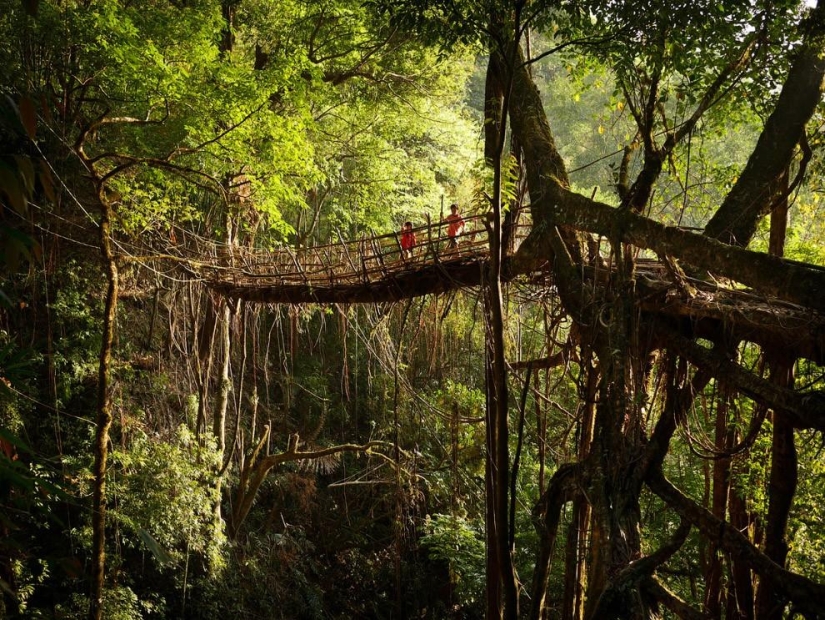
In the Eastern Khasi Mountains is the town of Mosinrem, known as the rainiest place on Earth. The annual precipitation rate here exceeds 11,870 mm . People who work outdoors often wear unusual huge umbrellas covering the whole body and made of bamboo and banana leaves.
One of the most interesting and beautiful features in the region are "living bridges" made of rubber trees, which, unlike conventional bridges, become stronger and stronger over time due to the development of the root system. Travel photographer Amos Chapple spent some time in this amazing place.
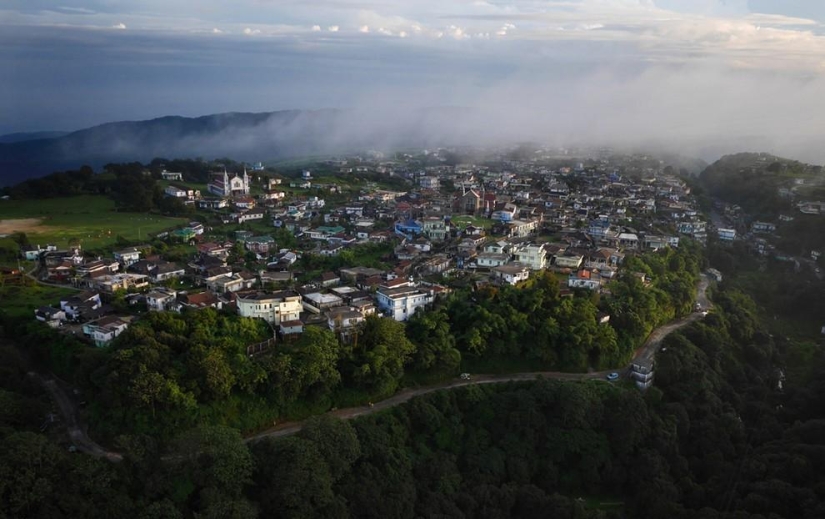
This is the very town of Mosinrem in the northeast of India.
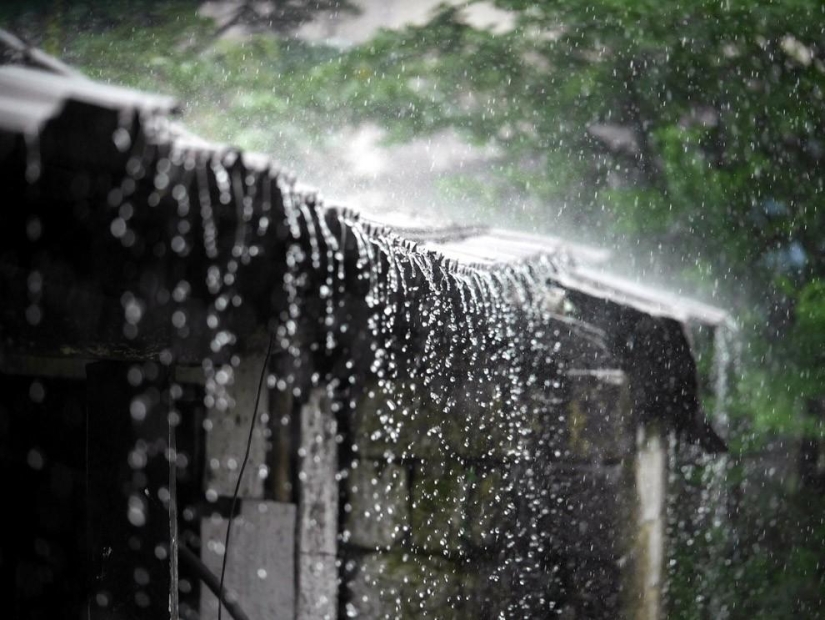
As usual, it's raining.
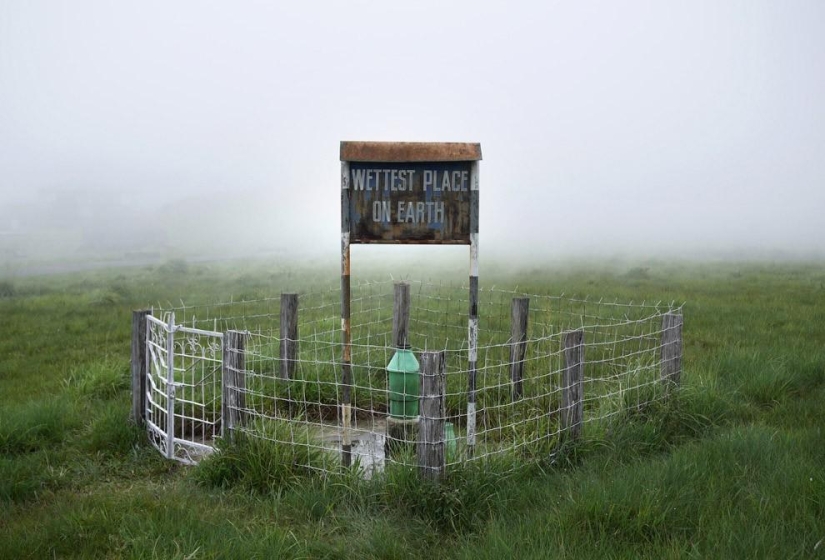
The sign "The wettest place on Earth".
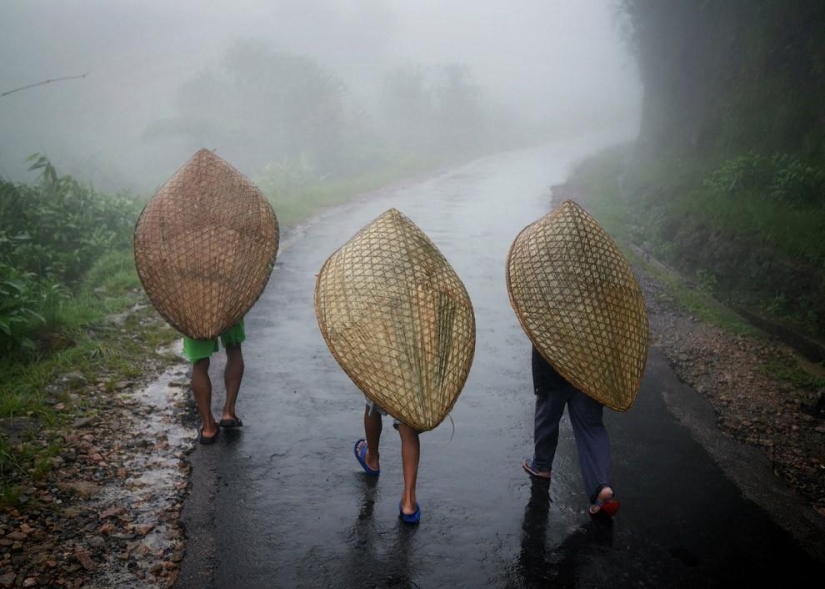
These are not boats, these are "umbrellas". They are made of bamboo and banana leaves.
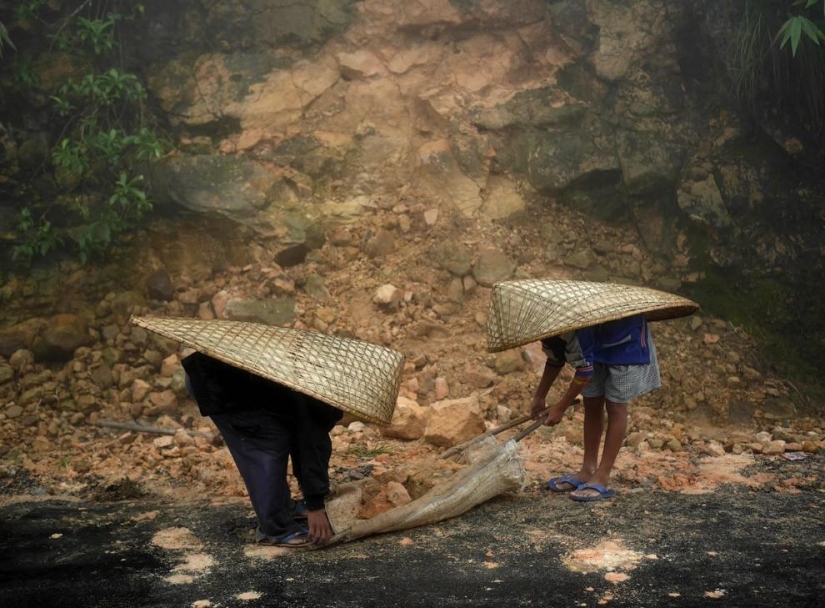
Due to the monsoon rains that go until October, rockfalls often occur. Serious repair work is impossible in this weather, but people are clearing the roads as far as possible. Such workers receive $2.60 per day.
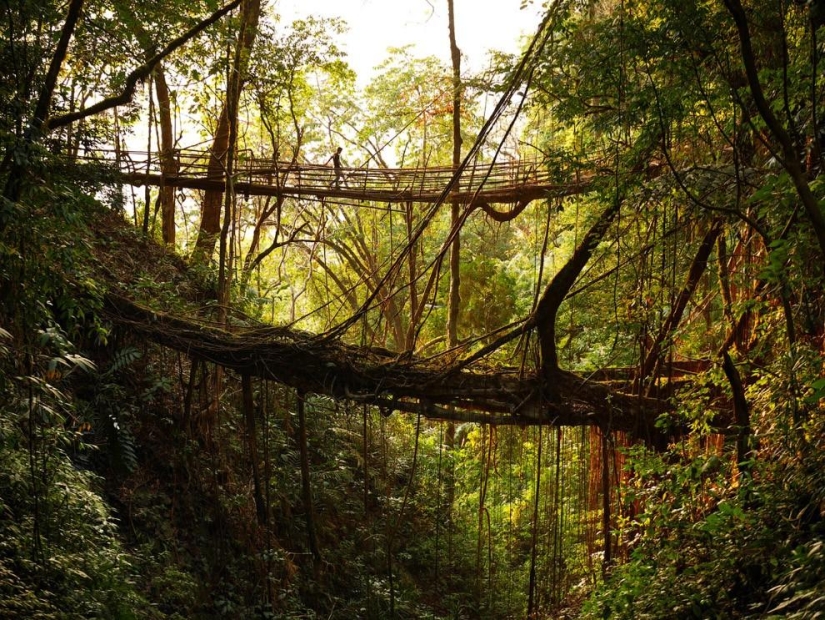
These are the famous "living bridges".
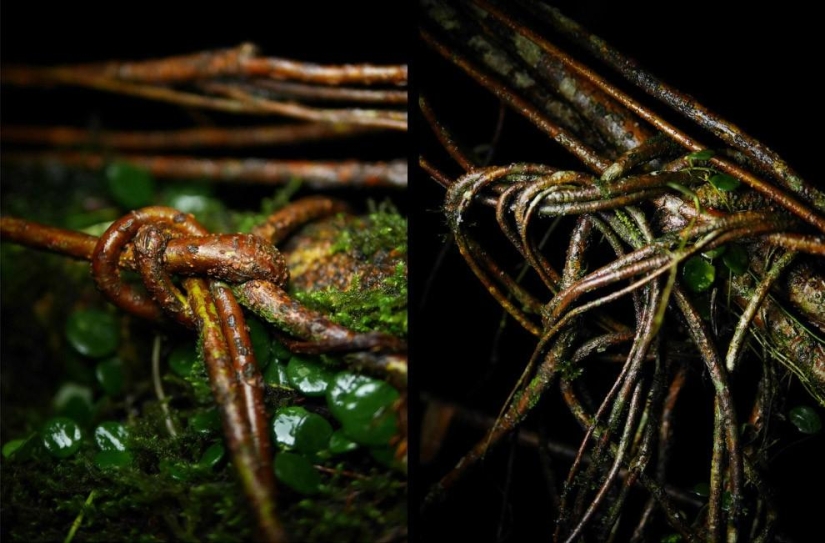
Thin tree roots that locals tie in knots to strengthen the "living bridges".
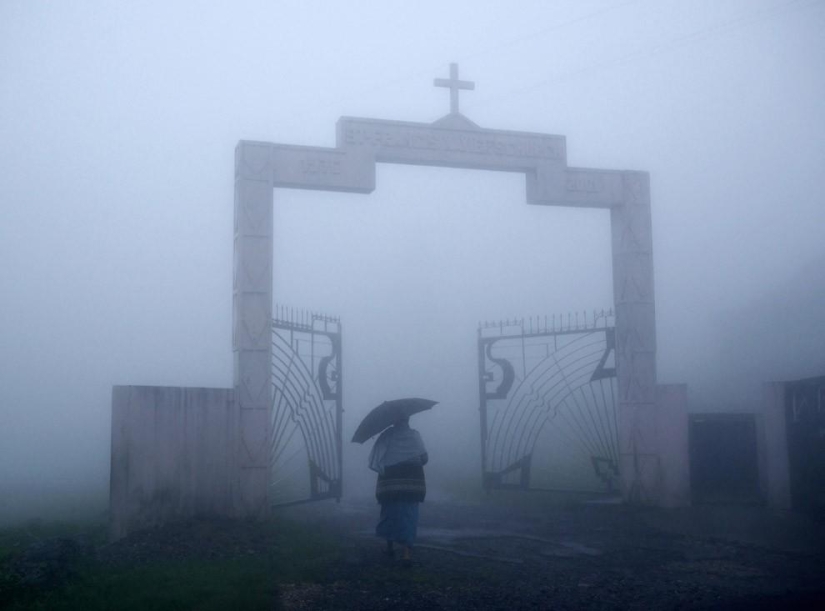
Sunday masses in the Catholic Church. Parishioners walk in the pouring rain.
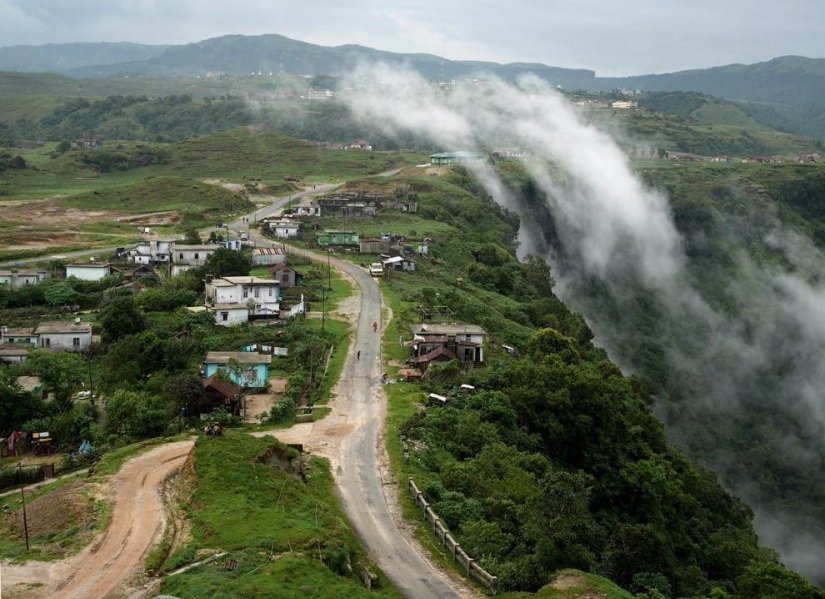
Clouds on the edge of the town.
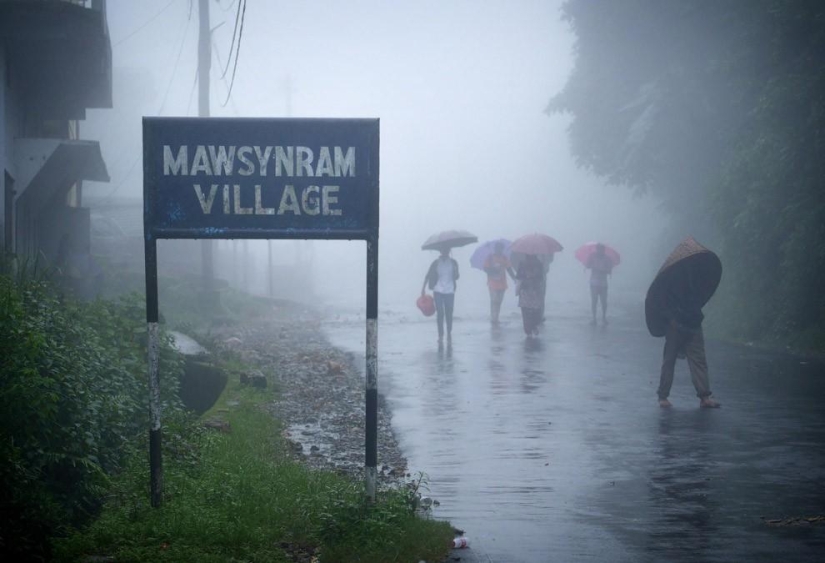
Entrance to the town of Mosinrem. And again torrential rain.
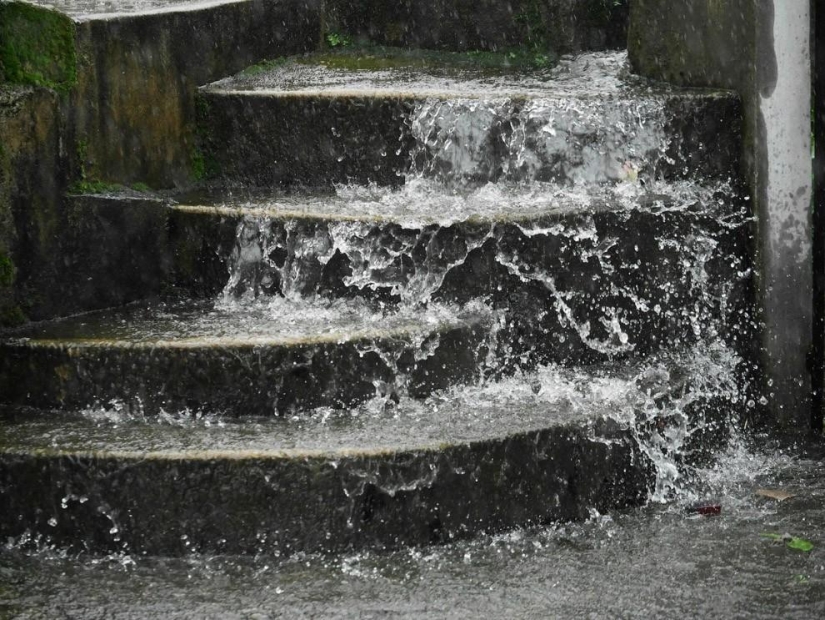
The annual precipitation rate here exceeds 11,870 mm . For comparison, the annual precipitation rate in Moscow is 691 millimeters.
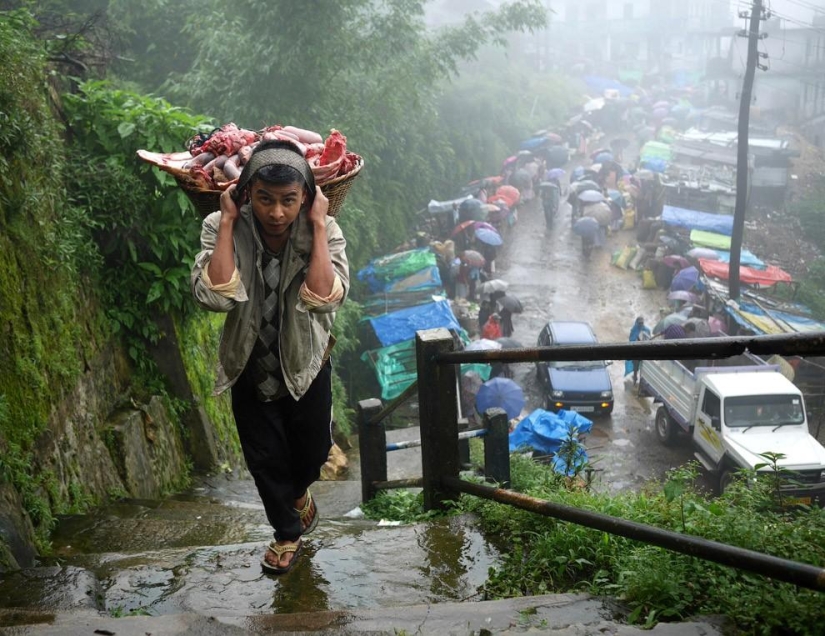
"We can't think about it. It always rains here," says a meat supplier to the local market.
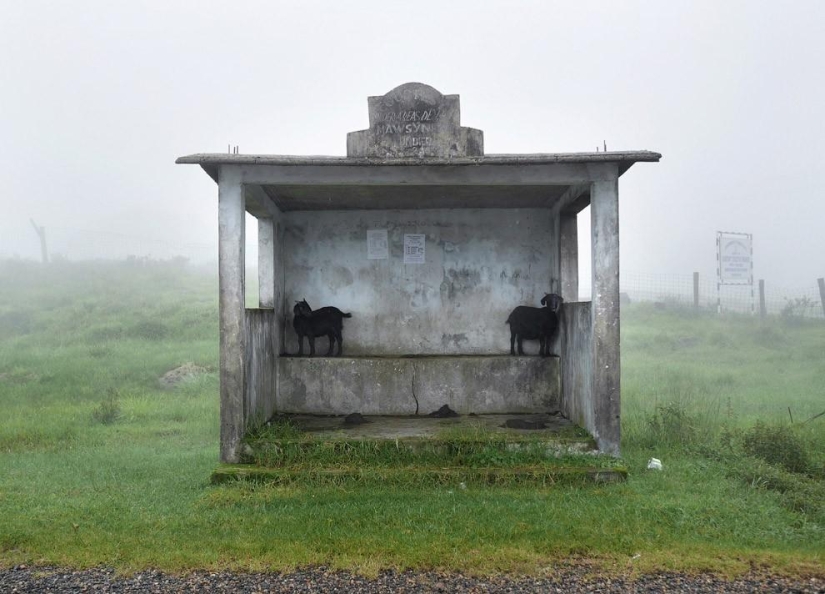
Goats escape from the rain at the bus stop.
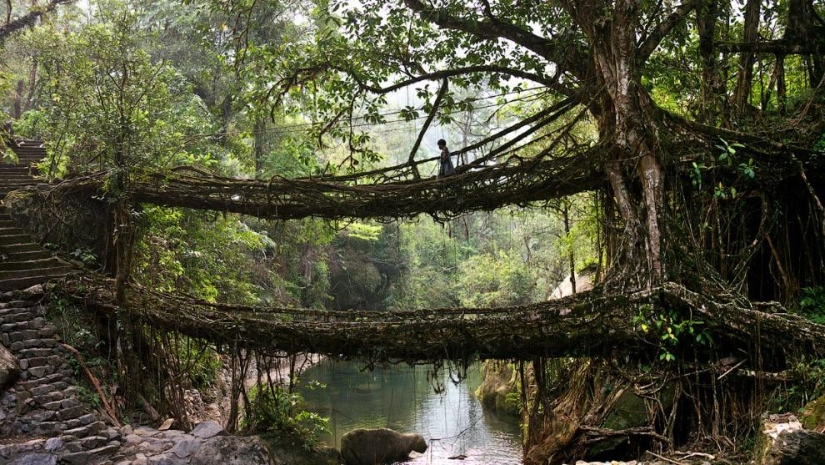
In this valley, "living bridges" have been used for centuries.
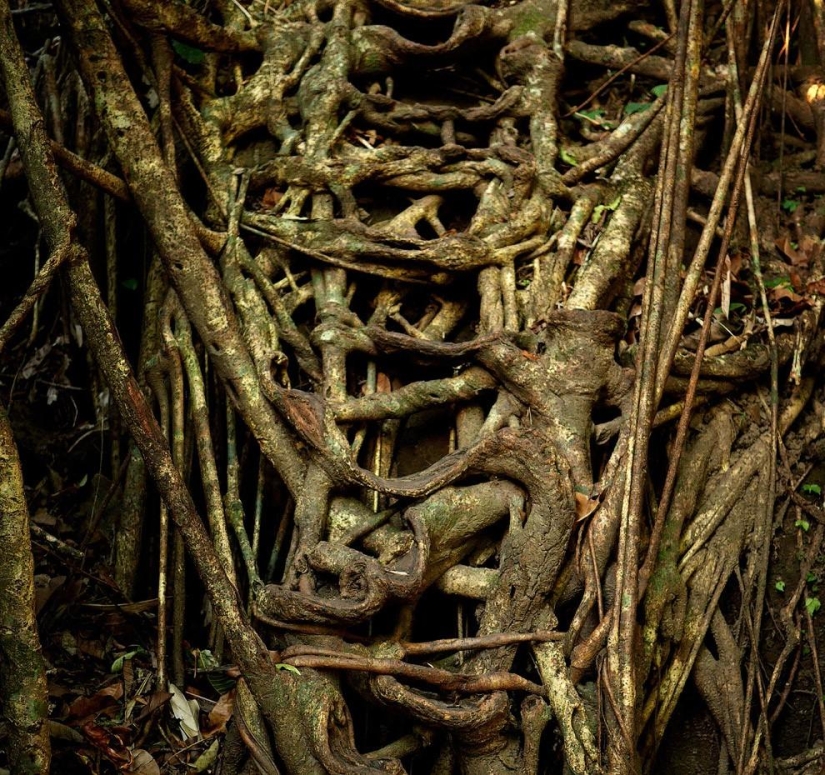
In addition to the "living bridges" there are also "living stairs".
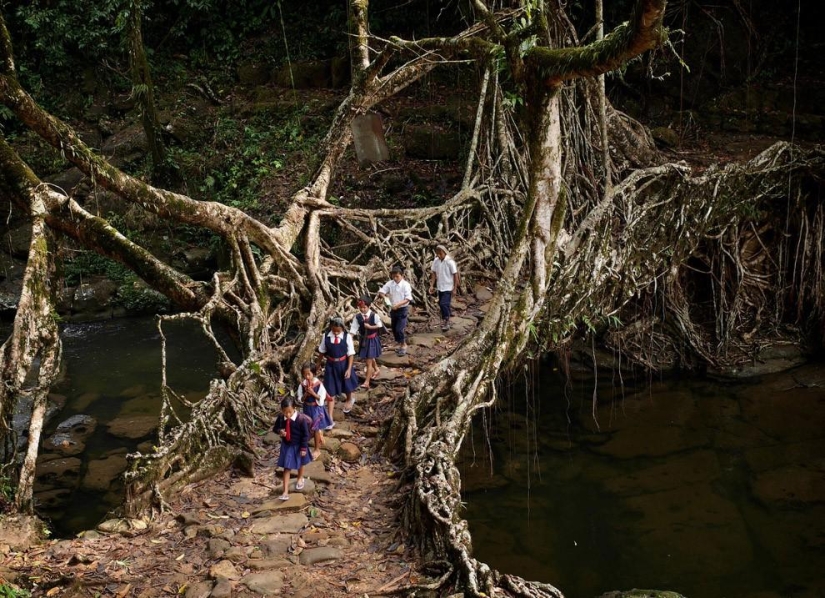
The bridge consists of a bamboo frame, which is tied with the roots of rubber trees. For 6-8 years, bamboo rots and remains a "living bridge" of roots that are already able to withstand the weight of a person. Over time, such a structure only strengthens.
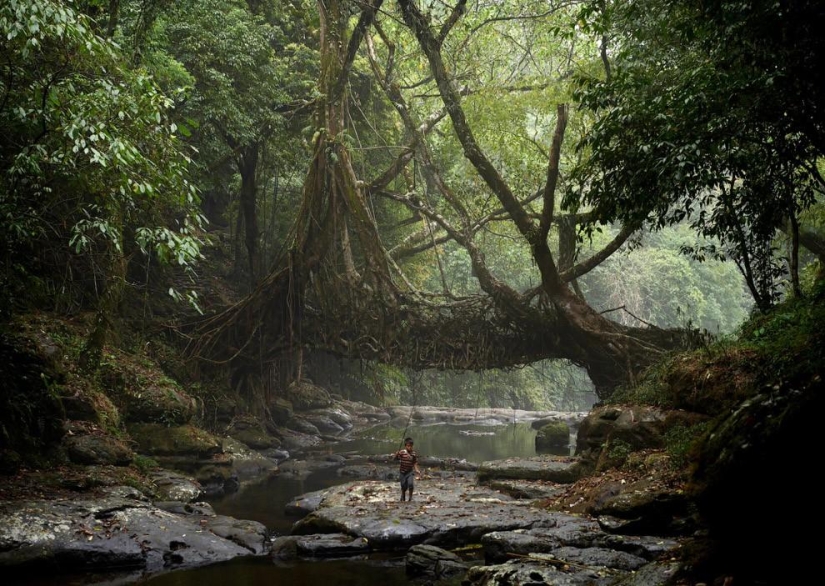
"The Living Bridge".
Recent articles

It's high time to admit that this whole hipster idea has gone too far. The concept has become so popular that even restaurants have ...

There is a perception that people only use 10% of their brain potential. But the heroes of our review, apparently, found a way to ...

New Year's is a time to surprise and delight loved ones not only with gifts but also with a unique presentation of the holiday ...